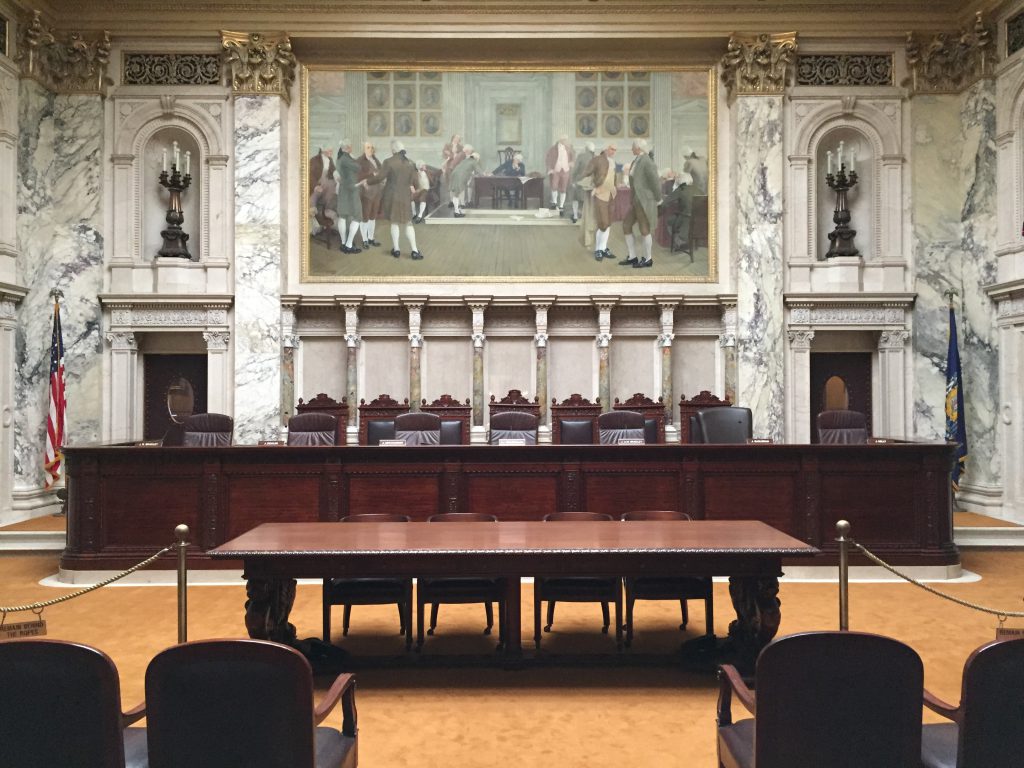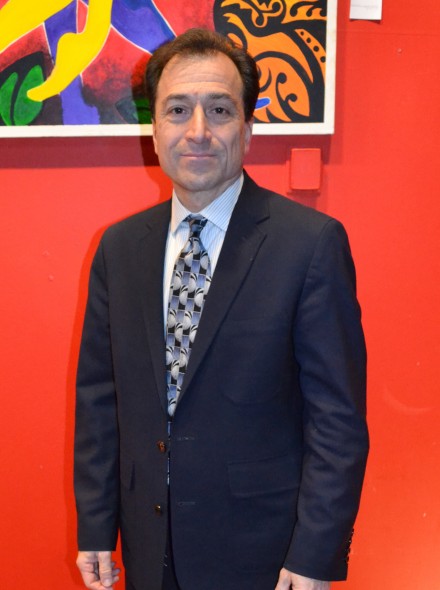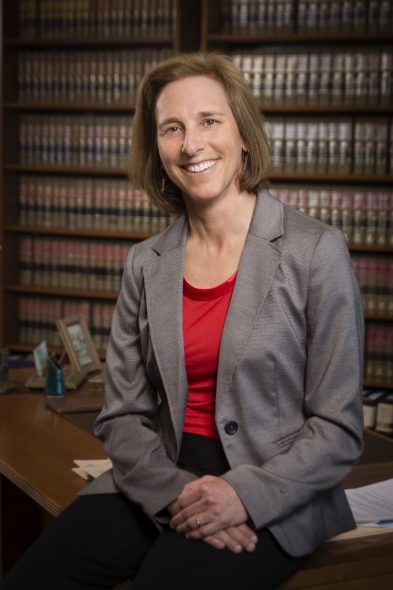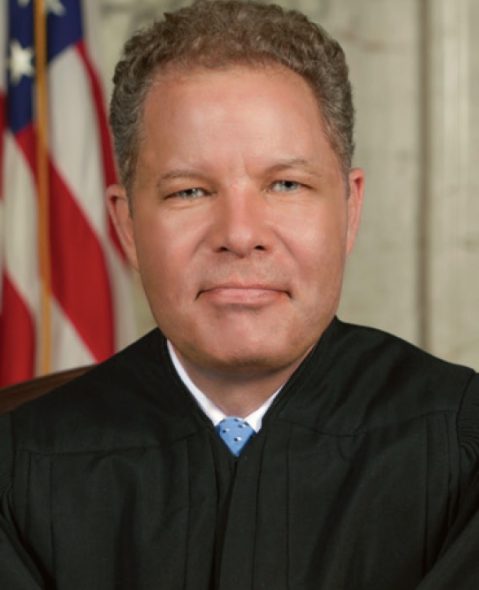State Supreme Court Candidates
The only statewide race on Tuesday's primary ballot.
Milwaukeeans voting in the February 18th spring primary election will find a long list of options on their ballot. While we would normally preview the entire election in one article, the ballot will be a long one and we are breaking our preview into multiple parts.
Three candidates are running for a 10-year term as a Wisconsin Supreme Court Justice.
The top two vote-getters in the primary will advance to the April 7th general election.
Below you’ll find basic information provided by the candidates themselves and a link to any available campaign resources. And if you click on their name you’ll be brought to any stories written about the candidate. Candidate names are listed in alphabetical order.
Ed Fallone
Ed Fallone grew up in a middle-class family in Maryland. The son of a public school teacher and a stay-at-home mom, Ed learned early on that success in life requires hard work.
These lessons were passed down through generations on both sides of Ed’s family. Ed’s great grandfather was an Italian immigrant and his grandfather worked both in the steel mills of Pittsburgh and as a farmer. Ed’s maternal grandfather ran a small corner store in Mexico City where he raised Ed’s mother.
As one of four children, Ed worked hard to earn an academic scholarship to Boston University for both his undergraduate and law degrees. After graduating at the top of his class, he was recruited by Fried Frank Harris Shriver and Jacobson in Washington, D.C., where he worked on one of the largest criminal grand jury investigations in U.S. history.
Ultimately, Ed was driven to follow in his father’s footsteps. He and his wife, Heidi, moved to Wisconsin in 1992 where Ed began a more than 25-year teaching career at Marquette University Law School.
Ed has dedicated his life to making the legal system more affordable for low-income and middle-income individuals, and to supporting the needs of the Latino community in Wisconsin.
He served on the boards of organizations such as Voces de la Frontera Accion, the Latino Community Center, Centro Legal, Catholic Charities Legal Services for Immigrants, and Catholic Charities of the Archdiocese of Milwaukee.
Along with his wife, Heidi, Ed also founded the patient advocacy organization Stem Cell Now.
Ed and Heidi, who live in Milwaukee, have been married for 28 years and have two children, Emma and Andrew.
Jill Karofsky
Judge Jill Karofsky is a candidate for Wisconsin Supreme Court. The primary election is February 18, 2020 and the general election is April 7, 2020.A dedicated advocate for victims and the rights of all residents of Wisconsin, Judge Karofsky previously served as executive director of the Wisconsin Office of Crime Victim Services. She also worked as an Assistant Attorney General, serving as the state’s Violence Against Women resource prosecutor, and as deputy district attorney in Dane County, prosecuting felonies and misdemeanors. She also worked as general counsel for the National Conference of Bar Examiners, and worked as an adjunct professor at the University of Wisconsin Law School, teaching about victims in the criminal justice system and trial advocacy.
Judge Karofsky is an ultra-marathoner and has completed multiple Ironmans. She was born and raised in south-central Wisconsin and attended public schools. Jill was a state tennis champion, a Division I athlete at Duke University, and graduated with both a master’s degree and law degree from UW-Madison.
Judge Karofsky received the WI Coalition Against Sexual Assault’s “Voices of Courage Award,” was named the WI Victim/Witness Professional Association’s “Professional of the Year,” and earned a “Significant Impact” Award from a local organization dedicated to ending domestic violence. She currently serves on the Wisconsin Judicial Education Committee and chairs the Violence Against Women STOP Grant committee. She previously co-chaired the Attorney General’s Sexual Assault Response Team, and served on the Governor’s Council on Domestic Abuse, the WI Child Abuse and Neglect Prevention Board, the Wisconsin Crime Victims Council, and the Dane County Big Brothers/Big Sisters Board of Directors. A partial listing of awards and volunteer service commitments are below.
Karofsky is the daughter of Peter Karofsky, a local pediatrician, and former Middleton Mayor Judy Karofsky, one of the first women in Wisconsin to serve as mayor. She has two children, a daughter in college and a son in high school, and a golden retriever named Cleo.
Daniel Kelly
Justice Daniel Kelly has dedicated a lifetime to the law. His position today on the Wisconsin Supreme Court is the capstone of a vast legal career in nearly every area of legal practice.
As a student at Regent University Law School, he was founding editor-in-chief of the law review. After graduation, he landed prestigious clerkships on the Wisconsin Court of Appeals and the U.S. Court of Federal Claims (Office of Special Masters).
After serving as a staff attorney with the U.S. Court of Federal Claims (Office of Special Masters), Justice Kelly moved into private practice. While he focused primarily on commercial litigation, Kelly also developed his criminal law and trial experience by representing individuals in both misdemeanor and felony cases. Kelly later gained valuable prosecutorial experience while serving in the Milwaukee County District Attorney’s Office as a special prosecutor where he tried misdemeanor and felony cases. For his service as a special prosecutor, Justice Kelly was awarded the Outstanding Service to Milwaukee County Award in 2002.
During over two decades in private practice, Kelly argued some of the most important cases in the state. While at one of Milwaukee’s premier law firms, Kelly headed the appellate practice group, personally arguing over a dozen cases before the Wisconsin Supreme Court, Wisconsin Court of Appeals, and U.S. Court of Appeals for the Seventh Circuit. He also served as second-chair on behalf of a University of Wisconsin student before the United States Supreme Court. His clients included dairy farmers, small businesses, a chamber of commerce, and even Cabela’s sporting goods store. Because of his broad legal expertise, Justice Kelly has been repeatedly called upon to instruct continuing legal education (CLE) workshops.
In addition to his regular work, Kelly always carved out time for issues he was passionate about. For instance, he filed a brief in the Wisconsin Supreme Court defending the state’s then-new school-choice program for low-income children in Milwaukee. He represented a faith-based community services group when an atheist organization challenged their right to participate in government programs. And he represented an inner-city church in its battle with municipal bureaucrats.
Kelly eventually stepped away from the day-to-day practice of law to serve as vice-president and general counsel for one of Wisconsin’s largest charitable organizations. There he helped facilitate philanthropic support for nonprofit organizations that make Wisconsin such a great place to live, like the Milwaukee School of Engineering and Teach for America.
Kelly returned to the practice of law when he co-founded his own firm, Roghan Kelly, in Waukesha County. And throughout these jobs, he stayed active in his community, serving on the Wisconsin Advisory Committee for the U.S. Commission on Civil Rights and the President’s Council for Carroll University (his undergraduate alma mater).
Four years ago, Kelly achieved the highest honor available to a Wisconsin lawyer: a seat on the Wisconsin Supreme Court. Since his appointment, he has reviewed thousands of cases, and personally authored dozens of leading legal opinions. His work on the Court reflects the values that he has displayed throughout his legal career: relentless logic, rigorous analysis, and hard work, all done with a friendly, collegial attitude. He’s earned the respect of judges, lawyers, and law enforcement through even-handed application of the law to the facts in every case.
In the election for Wisconsin Supreme Court, Justice Kelly’s experience, knowledge, and judicial temperament are simply unmatched.
If you think stories like this are important, become a member of Urban Milwaukee and help support real, independent journalism. Plus you get some cool added benefits.
More about the 2020 Spring Primary
- Why Don Natzke Couldn’t Vote - Enjoyiana Nururdin - Aug 9th, 2020
- Centers for Disease Control and Prevention’s Morbidity and Mortality Weekly Report highlights public health measures taken by the Milwaukee Health and Fire Departments, Department of Administration, Election Commission, and the Wisconsin Department of Health Services - City of Milwaukee Health Department - Aug 4th, 2020
- CDC Says Election Did Not Cause COVID-19 Spike - Erik Gunn - Aug 4th, 2020
- Pandemic Reduced Black Vote, Study Finds - Dee J. Hall - Jun 25th, 2020
- Did April Election Hike COVID-19 Cases? - Alana Watson - May 20th, 2020
- Elections Commission Notes ‘Lessons Learned’ - Henry Redman - May 19th, 2020
- Wisconsin Elections News: WEC Releases Analysis of Absentee Voting in April 7 Spring Election - Wisconsin Elections Commission - May 18th, 2020
- Election’s Impact on County’s COVID-19 Cases Unclear - Jeramey Jannene - May 6th, 2020
- Why State’s Voting By Mail Was Chaotic - Daniel C. Vock - May 4th, 2020
- At Least 40 COVID-19 Cases Tied to Election in Milwaukee - Graham Kilmer - Apr 24th, 2020
Read more about 2020 Spring Primary here

























